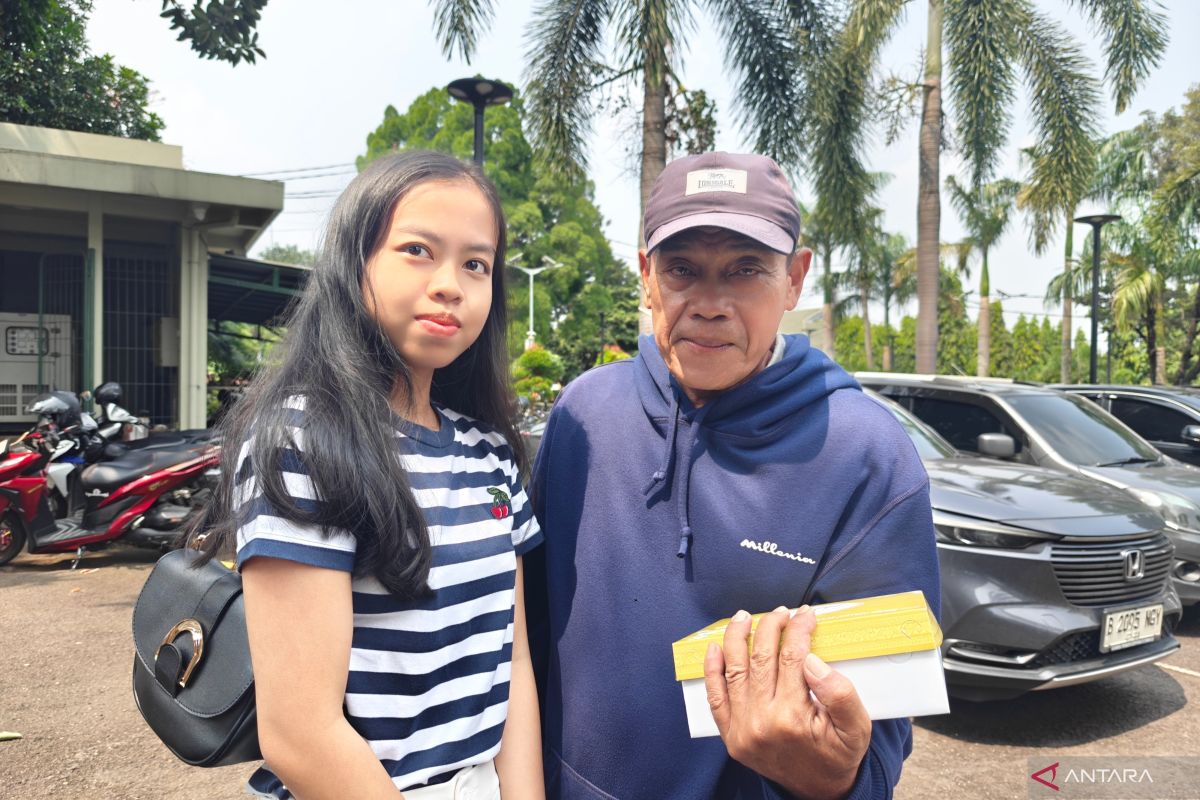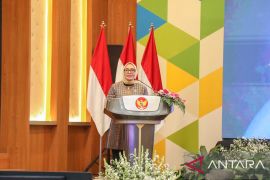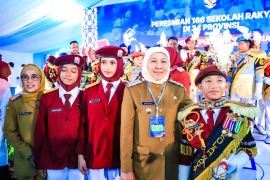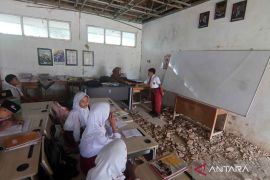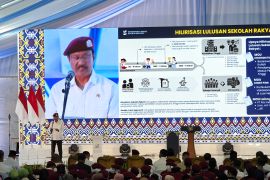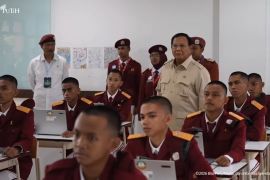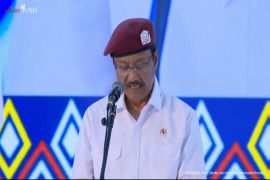The group of teenagers was orderly and seemingly unbothered by the strong smell of freshly painted walls and the glue on their study desks.
They had not gathered for a school trip. Instead, they were at the center as prospective students of the Sekolah Rakyat boarding school program, hoping to learn more about the place that would be their learning space for the next three years.
The activity was part of a series of public education events on the first phase of the Sekolah Rakyat program, led directly by Social Affairs Minister Saifullah Yusuf on Wednesday.
Smiling and curious, the prospective students toured the classrooms, explored the dormitory corridors, opened empty cupboards, and tried out the neatly arranged dining chairs.
Most said this was their first experience seeing a boarding school with facilities comparable to a three-star hotel. Some were silent, others exchanged glances, which seemed to convey their disbelief that such a place was open to them.
Like Windi, a 15-year-old girl who lives with her parents in a narrow house in a back alley in Cilandak, South Jakarta.
Windi recently graduated from public junior high school SMP Negeri 226 Pangkalan Jati. Her visit on Wednesday was her first as a prospective high school student of Sekolah Rakyat to see the learning environment that would change her life.
Standing still in front of a classroom, clutching a small black bag she has carried since eighth grade, she scanned the room, gazing at the rows of empty tables. Beneath her calm demeanor, she is confident, intuitive, and open to technology, typical of Generation Alpha.
Related news: Indonesian govt formalizes roles of Sekolah Rakyat educators
Windi is not talkative, but she is diligent. She enjoys reading lessons on her phone, writing notes on management and self-development, and lately, she has been determined to realize her dream of becoming a CEO.
That dream was not sparked by seeing figures on television or social media content but hearing stories from the Ministry of Social Affairs’ Family Hope Program (PKH) facilitators about leaders who create jobs for others.
“I want to be a CEO, own my own company. So I can help many people, including my family,” she said softly.
Her father, Toyib, 55, stood behind her. He has spent half his life as an intercity bus driver, driving across Sumatra and Java Islands, sleeping in the bus cabin, and eating at terminals.
Now, unable to drive long distances, he works whatever jobs he can find, such as making domestic goods from wood. For him, there is no shame in this, even though his income is just enough to scrape by.
He was taken aback when he heard his daughter express her ambition of becoming a CEO.
He said that his three children mostly spent their time with their mother because, as the head of the family, he had to earn a living.
“As PKH beneficiaries, we are grateful, and neither I nor my wife have any doubts about entrusting our children to be educated here,” Toyib added.
He described the Sekolah Rakyat free boarding school as a real solution to provide opportunities to children from low-income families to access education amid the high cost of living.
“Hopefully, its benefits can be felt by more families, and there will be no corrupt practices that undermine public trust,” he said.
In a classroom on the second floor, Farel Ramadhan, another 15-year-old, seemed focused on listening to a PKH facilitator. He is the son of a ride-hailing driver and a housewife.
Since childhood, he has been washing his clothes, caring for his younger sibling, and helping his mother cook whenever she fell ill.
Supported by his parents’ prayers, he is optimistic of becoming a tech developer by enrolling in the school.
“I am proud and ready to help my parents by not tiring themselves with harsh work. My dream needs knowledge, and I can only get it through education to fulfill my family’s hopes,” he said.
Learning activities at Sekolah Rakyat will start in mid-July 2025.
Standing in front of a hall filled with young people full of hope, with no podium, only a microphone and a row of folding chairs, Minister Yusuf affirmed that the government will consistently strive to improve the future of marginalized children.
According to the minister, letting children grow up without proper access to education is akin to allowing poverty to be inherited.
The Sekolah Rakyat program in Jakarta will be run out of three locations owned by the ministry. Each location will house 100 students who will live and study full-time for three years, free of charge.
The boarding schools will offer clean bedrooms, air-conditioned classrooms, a library, a laboratory, a dining hall, and a safe environment.
Students will not only learn academic skills but also receive life skills, spiritual guidance, and character development education at the schools.
According to Minister Yusuf, Sekolah Rakyat’s success would not be measured by exam scores but how much change the program brings to students’ lives.
He said he envisions a day when graduates from these schools stand on a university graduation podium, holding a diploma, knowing they are no longer bound by poverty.
Related news: Ministry refines Sekolah Rakyat concept for holistic learning
Editor: Rahmad Nasution
Copyright © ANTARA 2025
